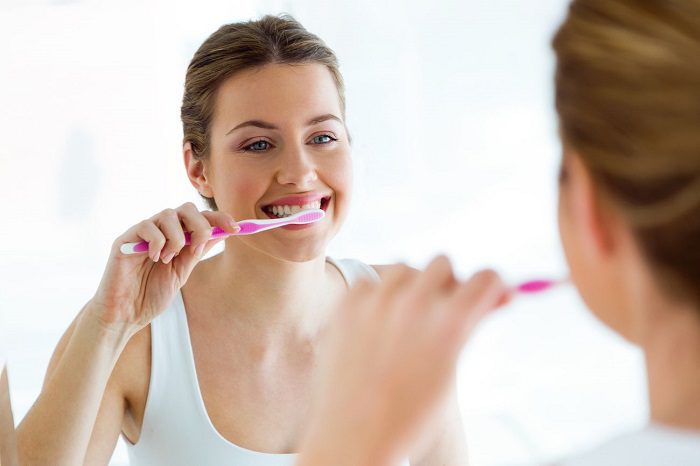Dental problems like cavities can wreak serious havoc on the look and feel of your smile. Oral hygiene removes plaque and other harmful residues in a timely fashion so that you can preserve your dental structure and fight these dental concerns. But in order to maximize oral health benefits, you need to use the right oral hygiene tools.
You know that if you run out of toothpaste or dental floss, you need to buy more. But you must also purchase a new toothbrush every so often. Read on to discover the importance of replacing an old toothbrush with a new one to get the most out of your oral hygiene regimen.

What Happens to a Toothbrush Over Time?
Your toothbrush features firm bristles attached to a plastic handle. As you continue to brush your teeth twice a day, these bristles will begin to fray and wear down. Then with this deterioration, the toothbrush cannot scrub as effectively as it once did.
Also, a toothbrush will collect germs as you use it, both from your mouth and the surroundings where you store it. This accumulation of harmful particles will make the toothbrush less efficient over time as well.
Do not attempt to cover the toothbrush head to avoid collecting germs when stored. This will breed mold and bacteria to worsen the issue. Instead, make sure to replace your old toothbrush in a timely manner.
How Often Should I Replace a Toothbrush?
You should replace a toothbrush every three to four months on average. After this point, the bristles on the toothbrush become too worn for proper brushing techniques.
If you use an electric toothbrush, you might notice it features shorter bristles than the traditional manual type. For this reason, you will need to replace the head of this brush more frequently. Switch out an electric toothbrush head every twelve weeks or so for maximum oral hygiene.
If you notice bristles beginning to fray before this period, you should replace the toothbrush sooner. You will also want to toss a toothbrush and buy a new one if you or someone else in your household contracts a contagious illness. This will stop the spread of germs.
What Happens If I Use an Old Toothbrush?
If you continue using an old toothbrush with worn, frayed bristles, you could leave plaque, food particles, and other residues on your teeth after brushing. This allows oral bacteria to spread and eat away at your dental structure. Then your teeth could be vulnerable to decay, and you could heighten your risk of oral infections like gum disease.
Therefore, make sure you use proper tools when completing oral hygiene, which will include using a fresh toothbrush. Brushing your teeth at least twice per day in conjunction with daily flossing and routine dental cleanings will protect your smile from serious oral health concerns. Learn more when you call your dentist today.
